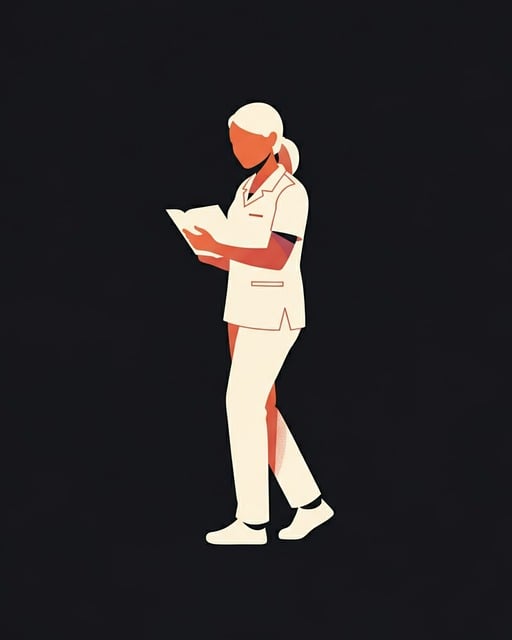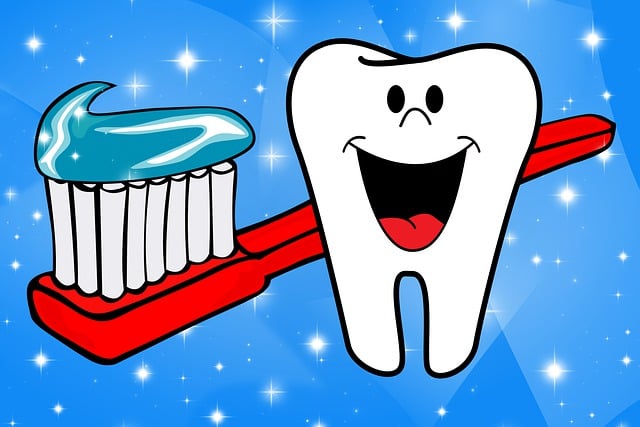In today’s diverse healthcare landscape, effective communication is key to delivering quality patient care. The presence of friendly, bilingual staff plays a pivotal role in bridging cultural gaps and ensuring accessibility for all patients. This article explores the significance of multilingual healthcare workers, highlighting the impact of Doctor Cazares—a beacon of cultural sensitivity. We delve into strategies to enhance patient experiences, address communication barriers, and provide training support for these essential professionals.
- The Importance of Bilingual Staff in Healthcare
- Doctor Cazares: A Role Model for Cultural Sensitivity
- Enhancing Patient Experience through Language Accessibility
- Overcoming Communication Barriers with Friendly Approach
- Training and Support for Bilingual Healthcare Workers
- Diversifying Healthcare Workforce: Benefits and Challenges
The Importance of Bilingual Staff in Healthcare

In today’s diverse healthcare landscape, having bilingual staff is more than just a convenience—it’s a necessity. Effective communication between patients and healthcare providers is paramount for accurate diagnoses and quality care. When staff members share the language and cultural background of their patients, it fosters trust, reduces misunderstandings, and enhances overall patient satisfaction. This is especially crucial in areas like McAllen, where a significant portion of the population speaks languages other than English.
At McAllen Dental (located at 1632 N. 10th Street), we recognize the value of bilingualism in our staff, including Dr. Cazares. Our team’s ability to communicate in Spanish and English allows us to connect with patients from various cultural backgrounds seamlessly. We encourage interested individuals to reach out via email at [email protected] or through our online inbox at Info@mcallen dental.com. By embracing multilingualism, we ensure that every patient receives personalized care tailored to their unique needs and preferences.
Doctor Cazares: A Role Model for Cultural Sensitivity

Doctor Cazares stands as a shining example of cultural sensitivity within the medical field. As a bilingual practitioner, she bridges communication gaps, ensuring every patient receives care tailored to their unique background and needs. Her approach transcends language barriers, fostering an inclusive environment where diverse communities feel heard and understood.
By embracing her bilingualism, Doctor Cazares enhances patient interactions, making complex medical information accessible to all. This dedication to cultural competency not only improves patient outcomes but also builds trust between healthcare providers and a wide range of patients. Her practice, located at 1632 N. 10th Street, McAllen, TX 78501, serves as a model for delivering care that respects and celebrates the rich tapestry of its community. For those seeking exceptional, culturally sensitive dental care, getting in touch electronically via [email protected] or scheduling an appointment at 956-686-5000 is a step towards experiencing this transformative approach firsthand.
Enhancing Patient Experience through Language Accessibility

Overcoming Communication Barriers with Friendly Approach

In today’s diverse society, effective communication between healthcare providers and patients is paramount. Language barriers can often create misunderstandings and hinder patient care. However, a friendly, bilingual staff can significantly overcome these challenges. By speaking both English and Spanish fluently, doctors like Dr. Cazares can bridge the gap, ensuring every patient receives clear and compassionate care. This approach not only facilitates open dialogue but also fosters trust between the healthcare provider and the patient.
A simple phone call to schedule an apt at 956-686-5000 or a quick chat during their Monday – Friday business hours can make all the difference. You can reach us at 956-686-5000 to discuss any concerns or questions you may have. Dr. Cazares and their team are dedicated to providing exceptional care, making sure no patient feels left out or misunderstood due to language differences.
Training and Support for Bilingual Healthcare Workers

Effective communication between healthcare providers and patients is paramount, especially in a diverse society. Bilingual staff members play a crucial role in bridging the language gap and ensuring every patient receives quality care. At McAllen Dental, we pride ourselves on having a team that includes Doctor Cazares, who are proficient in multiple languages. This skill set allows us to serve a wide range of patients from various cultural backgrounds seamlessly.
To maintain this high standard of communication, our team undergoes regular training and support programs. These initiatives focus on enhancing their language skills, cultural sensitivity, and medical terminology knowledge. Through workshops, language exchange sessions, and ongoing mentorship, our bilingual workers are equipped to navigate complex conversations with ease. For any inquiries or feedback, feel free to reach out to us at 1632 N. 10th Street, McAllen, TX 78501 or via email at [email protected].
Diversifying Healthcare Workforce: Benefits and Challenges

In today’s diverse society, diversifying the healthcare workforce is more crucial than ever. Hiring bilingual staff, including doctors like Dr. Cazares, offers significant benefits for patient care. They bridge communication gaps, ensuring that patients from various cultural backgrounds receive quality and compassionate treatment. This approach fosters trust and enhances satisfaction among diverse patient populations.
However, achieving a truly diverse healthcare team comes with challenges. Recruitment and retention can be difficult, as many qualified individuals from underrepresented groups may face barriers to entry. Moreover, providing ongoing language training and cultural sensitivity education is essential to ensure staff members feel empowered to serve their communities effectively. Despite these obstacles, the benefits of a diverse workforce are substantial, improving patient outcomes and creating an inclusive healthcare environment for all.
In conclusion, the presence of friendly, bilingual staff is invaluable in healthcare settings, as it significantly improves patient experiences, especially in diverse communities. As highlighted by Doctor Cazares’ inspiring story, cultural sensitivity and language accessibility go hand in hand. By training and supporting bilingual healthcare workers, we can overcome communication barriers and create an inclusive environment. Embracing diversity in the workforce not only benefits patients but also enriches the overall healthcare experience, as evidenced by the positive impact of doctor cazares’ work.
